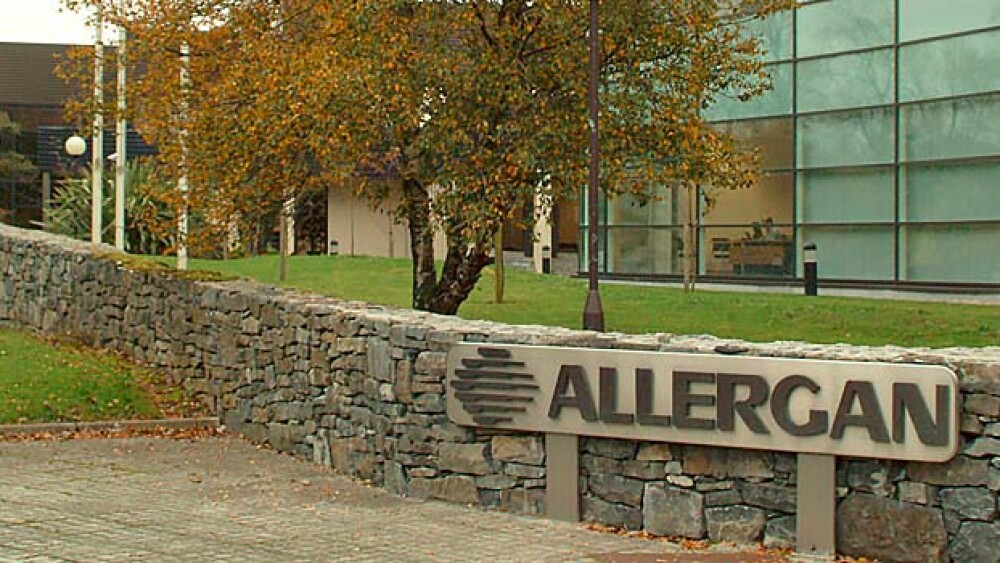After two of Allergan’s investors, Appaloosa Management and Senator Investment Group, wrote to the company’s board asking that Brent Saunders’ duties be split up, legendary investor Carl Icahn appears to be building a position in the company—again.
After two of Allergan’s investors, Appaloosa Management and Senator Investment Group, wrote to the company’s board asking that Brent Saunders’ duties be split up, legendary investor Carl Icahn appears to be building a position in the company—again.
Appaloosa and Senator each have about a one percent stake in Allergan, perhaps best known for being the manufacturer of Botox. Both hedge funds had been urging a management shift since Brent Saunders, both chief executive officer and chairman, described a plan to sell the company’s women’s health and infectious disease businesses.
Allergan had recently undergone a strategic review that considered splitting the company or acquiring more. The leaders of the two funds disagree with this approach and feel that the company needed to take away some of Saunders’ power, as well as add fresh blood to its board.
In the third letter Appaloosa’s David Tepper and Senator’s Douglas Silverman sent to the Allergan board in recent months, they wrote, “It is time for Allergan’s management to concentrate on running a world-class pharmaceutical and aesthetics business and forego thought of, or the exhilaration from, an ambitious acquisition strategy. We were underwhelmed by the Company’s half-hearted attempt to restore strategic momentum.”
The company on its part indicated input was always welcome, but didn’t really address their requests.
Company shares have dropped about 33 percent in the last year and debt has grown to $26.6 billion, more than half the company’s market value, driven by a string of acquisitions.
Reportedly, Icahn had a stake in Allergan in 2016, which he sold in the first quarter of 2017. Bloomberg reports, “Icahn has a long history with Allergan Chief Executive Officer Brent Saunders. In 2013, Icahn helped place Saunders at the top spot at Forest Laboratories, which was sold to Allergan less than a year later. The two have maintained a friendly relationship, one of the people said.”
In February, another activist investor, Sarissa Capital Management, indicated it has taken a position in Allergan.
Although Icahn’s current interest in the company is unknown, sources suggest he believes the company is undervalued.
Allergan has been the focus of not-always-positive attention for several years. In 2015 and 2016, it was well on its way to a merger with Pfizer, which would have been a major tax-inversion deal for Pfizer. A tax inversion is when a domestic company buys a company with headquarters in a country with a lower corporate tax rate, then moves its legal headquarters to that country to take advantage of the lower tax rate. On April 4, 2016, the U.S. Treasury Department released a new set of rules that made it more difficult for U.S. companies to conduct tax inversions. The Pfizer-Allergan deal was called off two days later.
From around 2014 through 2016, Allergan was the focus of a hostile takeover attempt that got tangled up in insider trading. In 2014, William Ackman, the activist investor who runs hedge fund Pershing Square, acquired a multi-billion-dollar stake in Allergan, or about 10 percent of the company. Part of the goal was to force Allergan into being acquired by Canadian drug company Valeant Pharmaceuticals International. At that point, Valeant was called a serial-acquirer, having made well over 108 acquisitions between 2008 and 2014.
About a month after buying the stake, Valeant and Pershing announced their joint bid to take over Allergan and the stock climbed 15 percent, which gave Pershing about $1 billion in gains overnight. Allergan responded with a lawsuit and the U.S. Securities and Exchange Commission (SEC) jumped in to investigate possible insider trading.
There were lawsuits and countersuits, and Valeant became the target of numerous investigations for how it ran its business which led to the downfall of much of its executive team. In 2018, Ackman and Valeant settled the insider trading lawsuit with Allergan and paid $290 million.
In comparison, at least so far, the disagreements with Appaloosa and Senator seem minor.





